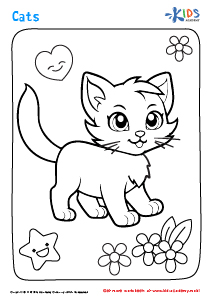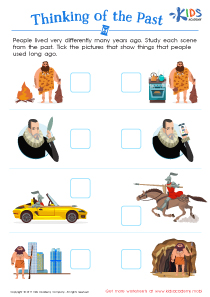Normal Geometry Quizzes for 6-Year-Olds
4 results
4 filtered results
Clear all filters4 filtered results
-
From - To
Unlock the world of shapes and sizes with our "Normal Geometry for 6-Year-Olds" interactive assessment quizzes! Designed specifically for young learners, these quizzes offer a fun and engaging way to explore basic geometric concepts. From identifying simple shapes to understanding spatial relationships, our quizzes cater to the curious minds of 6-year-olds, providing instant feedback to reinforce learning. Each quiz is crafted to check knowledge in a supportive way, ensuring a positive learning experience. Dive into the exciting realm of geometry and watch your child discover the joy of learning through our Normal Geometry interactive quizzes. Perfect for young explorers eager to shape their knowledge!
Normal Geometry for 6-Year-Olds is an innovative approach aimed at making the learning of geometric concepts engaging and effective for young children. In an age where education is rapidly evolving, the need for interactive and captivating learning methods has never been more crucial, especially in the introduction of mathematical concepts to young minds. The integration of Normal interactive quizzes on Geometry within the learning curriculum for 6-year-olds is an excellent step towards achieving this goal.
Geometry, at its core, is a branch of mathematics that deals with the properties and relations of points, lines, surfaces, and solids. Introducing this subject to 6-year-olds in a way that captures their attention and stimulates their curiosity is a significant educational achievement. Normal Geometry for 6-Year-Olds does exactly that, by transforming traditional learning methods into an interactive journey that children can both enjoy and benefit from.
The use of interactive quizzes in teaching Normal Geometry for 6-Year-Olds provides a plethora of benefits. Firstly, it caters to the natural inquisitiveness of children. By engaging them in interactive activities, children are more likely to develop an interest in the subject matter. This approach also accommodates various learning styles, ensuring that every child, regardless of their preferred method of learning, can grasp the concepts being taught.
Furthermore, these quizzes offer immediate feedback, a crucial aspect of the learning process. When children understand what they did right or wrong immediately, it enhances their learning experience and retention of information. This real-time feedback mechanism helps in reinforcing concepts and correcting misunderstandings on the spot, which is far more effective than traditional methods where feedback may not be as immediate.
The interactive nature of these quizzes also promotes critical thinking and problem-solving skills among children. They are not merely memorizing shapes and formulas but are encouraged to understand the logic and reasoning behind geometric concepts. This early development of analytical skills is beneficial not only in mathematics but across various aspects of life and learning.
Moreover, Normal Geometry for 6-Year-Olds through interactive quizzes makes learning more personalized. It allows children to learn at their own pace, going over concepts as many times as needed to grasp them fully. This personalization ensures that no child is left behind due to the one-size-fits-all approach that traditional education methods sometimes employ.
Incorporating technology into learning through these quizzes makes geometry relatable to children, considering their growing familiarity and comfort with digital devices. This approach aligns well with the digital era we are living in, preparing children for the technological advancements they will undoubtedly encounter in their future educational endeavors.
In conclusion, Normal interactive quizzes on Geometry offer a unique and effective way of teaching Normal Geometry to 6-Year-Olds. By making learning interactive, immediate, and engaging, these quizzes provide a solid foundation in geometric concepts for young learners. They not only aid in the cognitive development of children but also instill a love for learning and a curiosity for mathematics that will serve them well throughout their educational journey and beyond.
















